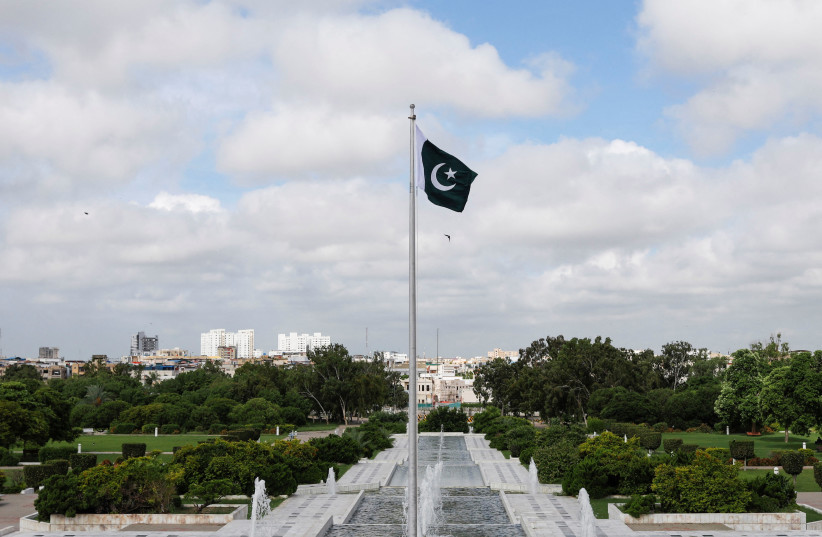Pakistani authorities are struggling to prevent the country's biggest lake from bursting its banks and inundating nearby towns after unprecedented flooding, while the disaster management agency on Monday added further 24 fatalities to its death toll.
Record monsoon rains and melting glaciers in Pakistan's northern mountains have brought floods that have affected 33 million people and killed at least 1,314, including 458 children, Pakistan's National Disaster Management Agency said.
The floods have followed record-breaking summer temperatures and the government and the United Nations have both blamed climate change for the extreme weather and the devastation it has brought.
Authorities on Sunday breached Pakistan's largest freshwater lake, displacing up to 100,000 people from their homes in the hope of draining enough water to stop the lake from bursting its banks and swamping more densely populated areas.
But water levels in the lake, to the west of the Indus river in the southern province of Sindh, remain dangerously high.

"The water level at Manchar lake has not come down," Jam Khan Shoro, the provincial minister for irrigation told Reuters.
He declined to say if another attempt to drain water from the lake would be made.
An ongoing humanitarian crisis
The floods have led to a growing humanitarian crisis, with officials especially concerned about the well-being of pregnant women and young mothers.
More than 100,000 pregnant women in badly affected Sindh province have been displaced by the floods, with only 891 making it to relief camps, according to data from the provincial government released on Tuesday.
The relief effort is a huge burden for an economy already needing help from the International Monetary Fund.
A delegation of three US lawmakers, who visited the flood-hit areas on Sunday to assess the damage and explore ways of assisting Pakistan in its recovery efforts, met Prime Minister Shehbaz Sharif on Monday, his office said.
Sharif told the lawmakers that given the challenges and enormous resources involved in the reconstruction efforts, "continued support, solidarity and assistance from the international community were critical," the office said.
The United Nations has called for $160 million in aid to help the flood victims but Finance Minister Miftah Ismail said the damage was far higher.
"The total damage is close to $10 billion, perhaps more," Ismail said in an interview with CNBC.
"Clearly it is not enough. In spite of meager resources Pakistan will have to do much of the heavy lifting."
Nevertheless, help kept pouring in with the foreign ministry reporting arrivals of relief flights on Monday from the United Nations and individual countries, including Turkmenistan and the United Arab Emirates.
Elsewhere in the region, floods are also threatening crisis-hit Sri Lanka, while rains have disrupted life in India's technology hub, Bengaluru.
The northern summer is the rainy season across much of Asia.
